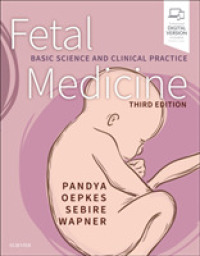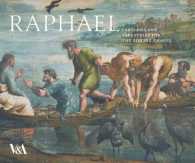- ホーム
- > 洋書
- > ドイツ書
- > Humanities, Arts & Music
- > Arts
- > photography
Description
(Text)
Eine fotografische Recherche
In ihrer ersten Publikation verbindet Pia Pollmanns die Geschichte ihrer Großmutter Elisa Kosch mit einer fotografischen Recherche im ehemaligen Landkreis Neumarkt bei Breslau. Der Bericht der Großmutter, den diese für den Familiengebrauch angefertigt hat, erzählt nüchtern und wenig sentimental vom Landleben in der schlesischen Provinz und von der Vertreibung der Deutschen als Resultat des Zweiten Weltkriegs und der Westverschiebung Polens durch die Siegermächte. Ähnlich nüchtern wie der Text der Großmutter zeigen Pia Pollmanns' Bilder die dortige, nach wie vor stark agrarisch geprägte Gegenwart mit der EU-üblichen Tristesse wüstenhafter Feldbewirtschaftung und dem ebenfalls allseits bekannten Verfall der großen Gutshöfe. Die eindrucksvoll porträtierte Landschaft postsozialistischer Prägung entspricht mittlerweile dem der "westlichen" Unorte, wo überall derselbe Mix aus der industriellen Perfektionierung des Anbaus und dem Zerfall der ländlichen Traditionen und dörflichen Strukturen vorherrscht.
Ausstellung:
Städtische Galerie Delmenhorst, 22/11/2019 – 15/3/2020
Sur les chemins d'Elisa Kosch
Dans sa première publication, Pia Pollmanns associe l'histoire de sa grand-mère Elisa Kosch à une recherche photographique dans l'ancien district de Neumarkt, près de Wroclaw. Le récit de la grand-mère, rédigé pour un usage familial, raconte sobrement et sans grand sentimentalisme la vie à la campagne dans cette province silésienne, l'expulsion des Allemands à laquelle a donné lieu la fin de la Seconde Guerre mondiale et le déplacement vers l'ouest de la Pologne par les puissances victorieuses. Aussi sobres que le texte de sa grand-mère, les photographies de Pia Pollmanns montrent le présent et la nature encore très agricole de la région, le caractère sinistre commun à l'UE de l'exploitation désertique et le déclin bien connu tout aussi général des grandes fermes. Le paysage dont est tracé ce portrait impressionnant, par nature postsocialiste, correspond aujourd'hui à celui des " non-lieux " occidentaux où domine partout le même mélange de perfection industrielle de la culture et de déchéance des traditions rurales et des structures villageoises.
Exposition :
Städtische Galerie Delmenhorst, 22/11/2019 – 15/3/2020
(Text)
A photographic research in the East
In her first publication, Pia Pollmanns combines the story of her grandmother Elisa Kosch with photographic research conducted in the former district of Neumarkt near Breslau. Written for family use, the grandmother's account reports soberly and rather unsentimentally on rural life in the Silesian province. It tells of the expulsion of the Germans in the aftermath of the Second World War, and the subsequent westward shift of Poland by the victorious powers. In the same sober manner as the text by her grandmother, Pia Pollmanns' pictures show the local, still agrarian character of the landscape, with the tristesse of desert-like agriculture common with the EU, and the equally well-known decay of the big farms. Post-socialist in nature, the impressively portrayed landscape meanwhile corresponds to that of the "western" non-place, with its predominant and omnipresent mix of industrial perfection of agricultural cultivation and the disintegration of rural traditions and village structures.
Exhibition:
Städtische Galerie Delmenhorst, 22/11/2019 – 15/3/2020








